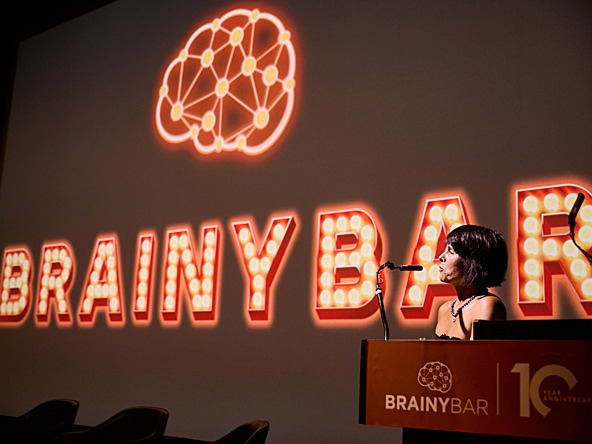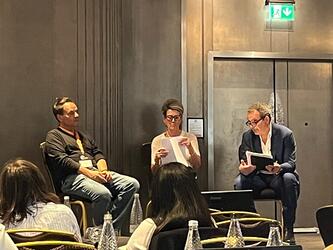Stories must draw on ‘richness of human emotion', panel says

Speaking on a panel session about storytelling, Will Hodge, chief strategy officer at Droga 5, said that advertisers needed to recognise the importance of tapping into people’s emotions when telling stories.
“We have an amazing responsibility as brand owners, marketers, creative people and insight people to go really hard into life and understand where the stories live,” he said.
“Our job is to find the most beautiful, wonderful, surprising ways to express them and the richness of human emotion upon which stories stick.
“I feel as if too many of the stories we tell are trying to be rational and right, and not trying enough to be interesting and sticking.”
Hodge added that in a world of over-saturation of content, stories from brands had increasing challenges in cutting through the noise.
“What we do and what we are excited by is how we think creatively about stories that generate their own distribution, or are stories that others want to tell or carry for us or complete,” he added, saying that this included telling stories that are layered, sequential and different, and “maybe not as linear in how we tell them”.
He concluded: “Build and write stories that are so interesting that you want to see them.”
Also appearing on the panel, Tracey Neis, senior director at PepsiCo, recommended seeking out what truly drives consumers to create engaging content.
“You need to uncover what their deepest, darkest fears are that they’re not talking about,” Neis said. “That sounds really scary and really uncomfortable – and I am not going to tell a story there. I would tell a story about the great lengths a human would go through to avoid that.”
She added that advertisers can use this to humorous effect, but said that a consistent message was key for consumers to receive the right message, and engage with and believe the sentiment behind the content.
“I would start with ‘what will the naysayers say’,” she added, stating that when creating new advertising content it is important to understand what people might not like about the new direction and decide if it is something you are willing to accept, “but lean into it and understand it – don’t go in with blinders that your product and category are going to punch above its weight”.
Neis concluded: “Be absolutely obsessed with your consumer. Listen to everything they are saying like you actually care.
“You can’t be inspired unless you’ve had a conversation with someone who is different from you, and realised how similar and different you are at the same time.”
Charlotte Nairne-Clark, head of brand campaigns at Aviva, advocated the role of emotional storytelling.
“We have a fragmented media world,” she explained. “In a world of algorithms, for me, emotional storytelling is one of the best ways to differentiate. Emotional storytelling is the thing people will remember about your brand, not the algorithm.”
For example, at Aviva she said the company had used adverts with puzzles to engage their audiences, and said “we really proactively go after positive environments, as we want the associations of Aviva and financial services to be positive ones”.
(Image: Dr Cristina de Balanzo opens Brainy Bar)

We hope you enjoyed this article.
Research Live is published by MRS.
The Market Research Society (MRS) exists to promote and protect the research sector, showcasing how research delivers impact for businesses and government.
Members of MRS enjoy many benefits including tailoured policy guidance, discounts on training and conferences, and access to member-only content.
For example, there's an archive of winning case studies from over a decade of MRS Awards.
Find out more about the benefits of joining MRS here.














0 Comments